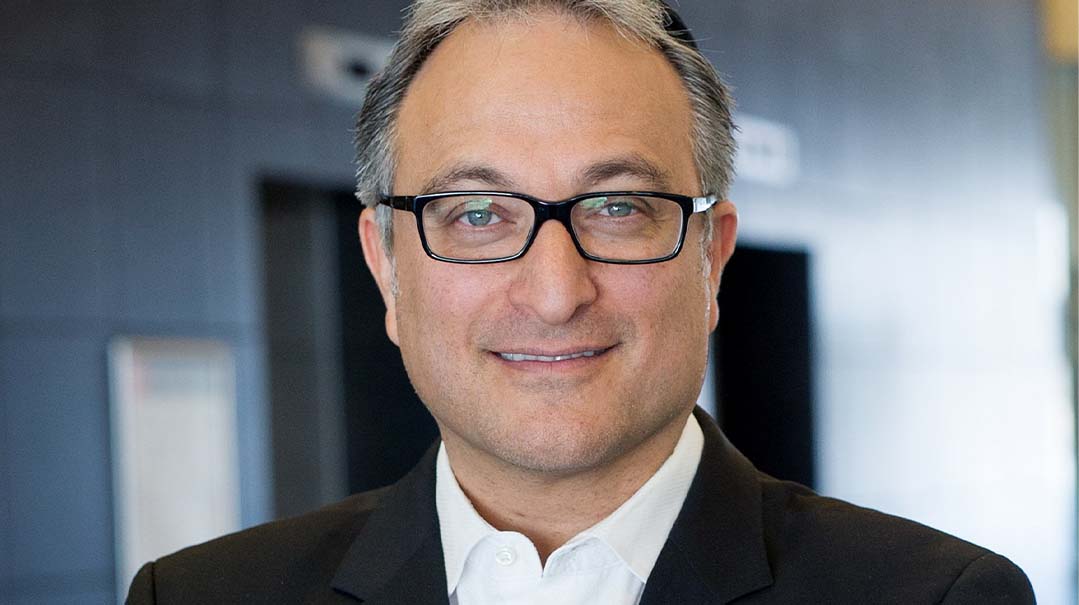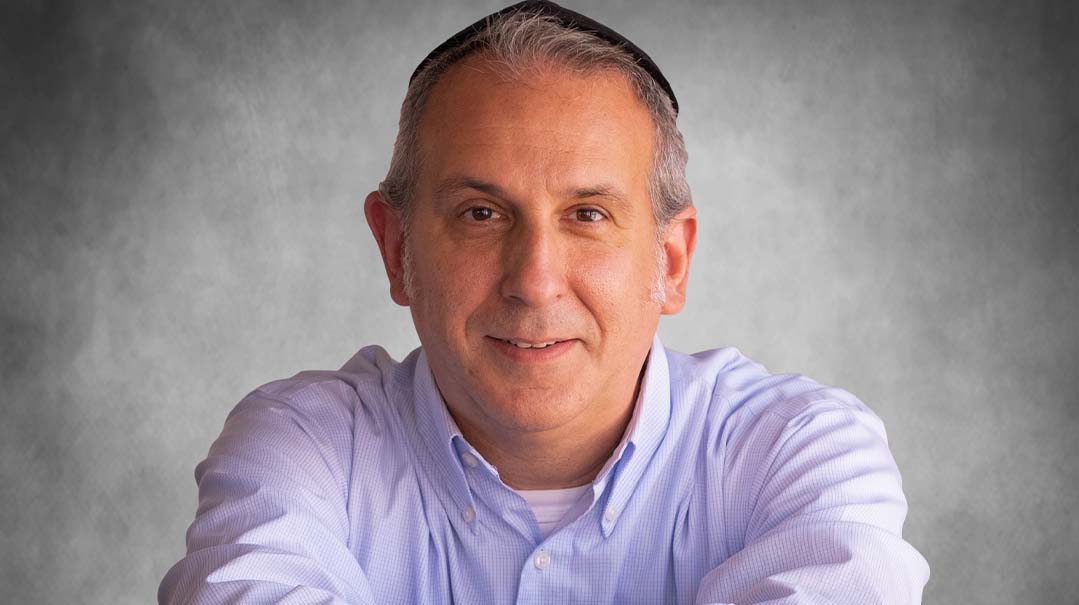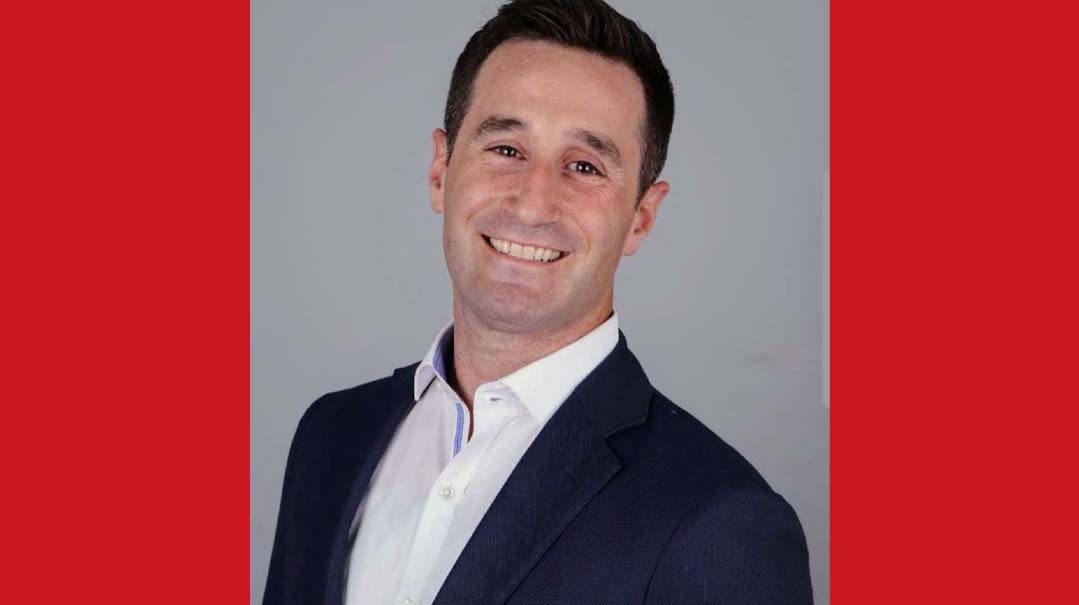Work/Life Solutions with Rachel Geisler

"Do be present. When you’re at work, be at work, and when you’re at home, be at home"

Who Rachel Geisler, engineering lead at Google.
What Rachel has been at Google for nearly 14 years working on a variety of projects, including Google Maps, Social, and Search. Currently, she’s leading an infrastructure team focused on building search solutions for private and structured data. In addition, as a strong advocate for women in computer science, she organizes and participates in events geared at exposing Orthodox high school girls to career opportunities in computer science.
Where Rachel attended Bruriah High School in Elizabeth, New Jersey, learned at Michalah in Jerusalem, and then received her BA from Barnard College and master’s in computer science from Columbia University. She currently lives in Cedarhurst, New York, with her husband and four kids.
Why There are two reasons I interviewed Rachel. One, she works at Google. Like, she actually helped build Google Maps. How cool is that? (Okay, so maybe that’s a rather shallow reason.) Two, I heard firsthand from a previous interviewee, Mordy Golding (Director of Content @ LinkedIn), that Rachel has been an incredible role model to so many frum women in the professional world. She spoke at an event in the Five Towns and gave tremendous chizuk to women trying to balance their careers with raising a family, without compromising on either. (Now, how cool is that?)
1 of 9 What opportunities or personalities played a role in your career path?
I would say my mother is both my primary role model and a big inspiration. She worked for AT&T at a time when women in tech were few and far between. But she’s tenacious and smart and had a successful 40-year career while still being a full-time mom. Now that she’s retired, her focus is on paying it forward and helping the next generation of women to find their place in science and technology fields — and also on spending lots of time with her grandchildren.
As far as opportunities, I’m a strong believer in making your own. Very often people tend to sit back and wait for advancement or chances to showcase themselves. I fell into that mentality myself in the beginning, thinking that if I do the work, I’ll be recognized. The reality, however, is that rarely does a door open wide so you can walk right through. Most of the time you need to take the initiative and generate your own opportunities. Identify a unique strength that may set you apart from others and highlight the value you bring to the table, then put yourself out there. What’s the worst that could happen?
2 of 9 Which three character traits have played a key role in your career path?
One — determination: I’m a determined individual by nature, and if someone tells me I can’t do something, I’m determined to prove I can. That has definitely helped me pave my way as a woman in tech. On my first day of college I met with the academic advisor assigned to me. She asked me what I was considering as a major. I was always a math and science person and thought that maybe computer science might be a good option. When I told her I was considering computer science, she dismissed me out of hand, despite knowing nothing about me. She was adamant that if I went down this path I would fail (her exact words were that I shouldn’t expect to get higher than a C). Her attempts at discouraging me had the opposite effect — I only became more determined. That kind of tenacity has come in handy many times.
Two — empathy: Now that I manage a team, I use a different skill set than I did when I first started at Google. Empathy and compassion are necessary. Consideration of who people are as individuals, understanding what people need and want, and how to create a safe environment for them to be successful keeps the team productive, motivated, and happy.
Three — speak less, listen and do more.
3 of 9 What do you do to relax, recharge, or simply have fun? How do you make time for that, and how often?
Isn’t that why Hashem created Shabbos? It’s our opportunity to disconnect from our busy lives and enjoy quality family time. It’s amazing how Chazal were ahead of the times. So many people today struggle to unplug for a few hours, but with Shabbos, we have that built into our lives. It’s such a blessing!
In our house, we love to play family board games. One of our favorites is a game I picked up on a business trip in Zurich. I’m always on the lookout for new screen-free options we can do as a family.
5 of 9 If you were granted an extra three hours per day or a spare million dollars, what would you do with that time or money?
I would spend an extra three hours with my husband and kids (they’re all awesome).
6 of 9 What is the most inspiring feedback you’ve ever received? Did that impact what you did next?
Never be just “okay.”
I had recently returned from maternity leave with baby number three and was navigating ramping up a full-time career with having three kids under the age of four. Life was hectic and I was struggling to figure out how to balance it all — while being completely sleep deprived. I remember meeting with my manager at the time and I flat out told him I was “okay.” I wasn’t looking for anything extra. I had three kids and just wanted to come in and do my job. Basically, I was fine with the status quo. What I didn’t realize at the time was that I was closing all the doors. When interesting projects came up, my manager shopped them to other people on the team who were looking for opportunities, while I was left with the grungy work. It took me some time and a lot of siyata d’Shmaya to reset my perspective and to realize that, career advancement aside, I wanted to be challenged, I wanted to work on interesting projects and I wanted to grow.
Fast-forward a few years. I was sitting at a training session with a high-level female director who started telling a similar story. She was recently back from maternity leave and when her manager asked her how she was, her response was “I’m okay.” Her manager immediately stopped her in her tracks. “That is never something you say to your manager. You can share with your friends or your spouse all of your frustrations and the difficulties balancing family and work, but never tell your manager — because where you are and what you want today may not be what you want tomorrow. If there is a new opportunity or challenge, you want the decision to be yours and not made by someone else on your behalf.”
It was an “aha” moment for me to realize that I fell into this trap like so many other women. Over the years I’ve moved onto the managerial side, and when I hear someone tell me they’re “okay,” I relate this to them. It’s rewarding to see the reaction. It’s an instant “pay it forward” moment.
7 of 9 If you were asked to deliver a TED Talk that would be watched by 50 million people, what topic would you choose to speak about and why?
The importance of building a strong team — because in the end, you’re only as good as your team. This is true both personally and professionally. So many of us, especially women, tend to personalize everything. The feeling of responsibility for a task is on me, and a failure means I wasn’t good enough or I missed something or if I’d had it more together I wouldn’t have forgotten about that car pool. But families, as well as companies, and indeed even great countries, rise and fall together. Build a strong team, trust your team/family members, and empower them. Don’t be afraid to drop the ball or ask for help. We can’t do everything alone.
On the home front, my husband and I are true partners. Our lives and schedules are crazy and we’re constantly juggling lots of things. But no matter what, we’re in it together and work together to make each other and our family successful. Sheryl Sandberg, in her book Lean In, wrote that the most important career decision you will ever make is deciding who you are going to marry. I couldn’t agree more.
8 of 9 Can you share a time when you had to navigate the tension between your deepest values and the business world?
I’m lucky that Google embraces diversity and has been a great place for me as a frum woman. The Jewglers (Jewish Googlers) benefit from free kosher food in the New York City office, a daily minyan, Chanukah parties, and even a Google-themed succah on Succos. The Google NYC succah is built to halachic standards, which is a feat considering the city’s building codes. It started quite the trend — there are now a number of succahs at Google campuses around the globe, equipped with video conferencing for Jewglers around the world to connect and celebrate together.
I’m also part of an on-call rotation to support Google’s production services, which requires 24/7 support while on call. My team knows that I can’t work on Shabbos and will proactively swap on-call days with me to ensure that I am never on call Friday night or Shabbos. In turn, I cover for them over their holidays (which works out better for me, because there are fewer changes over legal holidays, so I get paged less often).
9 of 9 If you were advising a young man/woman hoping to launch a career as an entrepreneur, which “dos” and “don’ts” would you share?
Do be present. When you’re at work, be at work, and when you’re at home, be at home. Let the people you interact with know they have your full attention.
Do be challenged. Push yourself to continue to learn and surround yourself with individuals who are smarter than you.
Do take responsibility. At Google, we have a culture of blameless postmortems. We’re responsible for building large-scale complex systems, and we constantly roll out new products, features, and fixes. Along the way something is bound to go wrong. When we have an outage or something fails, we don’t look to point fingers but rather look to learn from our mistakes so that we don’t repeat them. Own it and see it as a growth opportunity.
Don’t just talk, really listen.
Don’t give up. Take risks and don’t look back.
(Originally featured in Mishpacha, Issue 778)
Oops! We could not locate your form.







